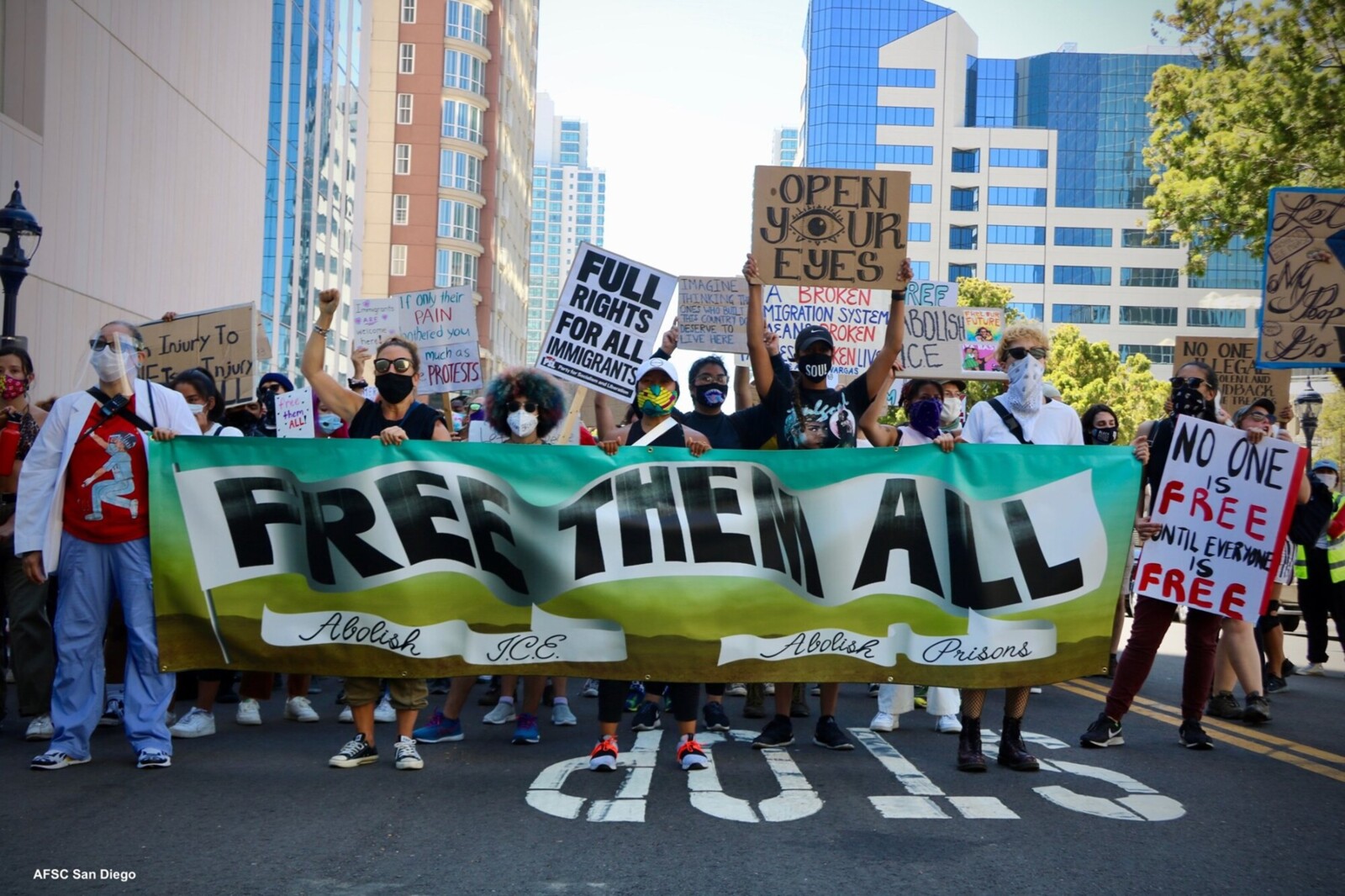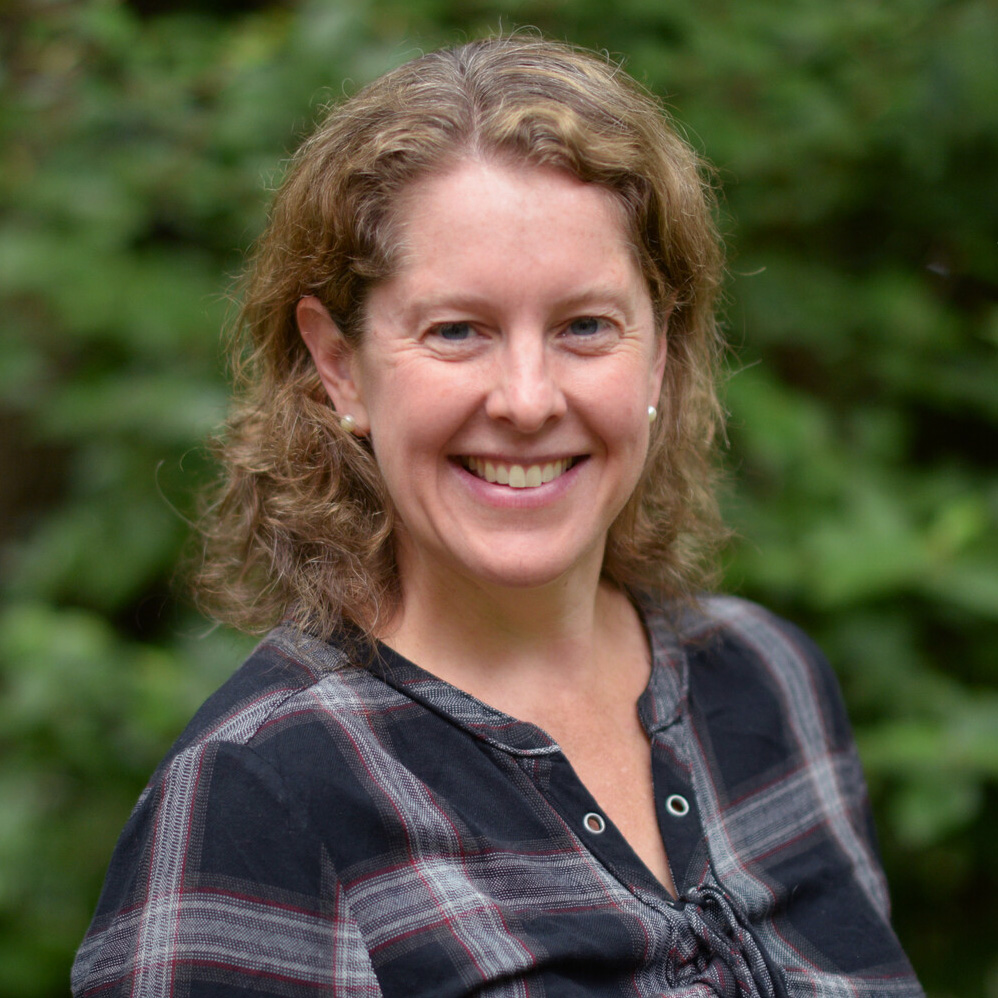
Since mid-March, when the seriousness of COVID-19 was beginning to hit home in the United States, thousands began taking to social media, and to the streets, united under the call to #FreeThemAll. People were calling for the release of those held in prisons, jails, and detention centers.
Carceral spaces have never been safe places. Human and civil rights violations are rampant, health care is inadequate and difficult to access, and the trauma of confinement itself takes a toll on the physical and mental health of those who are incarcerated. During a pandemic, the risks multiply exponentially. The nature of confinement makes it almost impossible for people to practice social distancing, and inadequate health care and limited sanitation supplies help COVID-19 spread.
At AFSC, we have been flooded with letters and calls from people in prisons and detention centers across the country. We hear over and over, “I don’t want to die in here.”
In California, hundreds of people in immigration detention went on hunger strike, demanding their release as facilities are failing to provide them with even the most basic levels of sanitation.
In Michigan, families and loved ones are pleading with their governor for compassionate release as the virus spreads across the state’s overcrowded prisons at an alarming rate.
In New York, we work with a young filmmaker, Kharon Benson, whose dad is incarcerated in Greene Correctional Facility. He tells us, “My father usually calls me every few days, but I haven’t heard from him in over two weeks. I just want to know that he’s alright.” We hear similar fears from so many young people with incarcerated parents.
Incarceration does not keep us safe. If incarceration stopped violence, the U.S. would be the most peaceful country in the world. Instead, the country warehouses 2.3 million people—the vast majority of whom are Black, brown, and poor people—while doing nothing to stop harm or help survivors of violence heal.

Over 600,000 of those 2.3 million people are in jails, and the vast majority in jail are pretrial, meaning they have not yet been convicted of a crime. Many are there simply because they don’t have enough money to pay bail. More than 30,000 people are held in immigration detention, because of cruel and illogical policies that condemn them to incarceration while they wait for their immigration cases to be adjudicated. And the majority—almost 1.3 million people—are held in state prisons, often serving long sentences of decades or more.
No one is served by keeping millions in cages. If the factors that lead to incarceration are poverty, racism, trauma, and lack of access to essential services, locking someone up in a cage where they will be further traumatized and impoverished simply perpetuates the cycle.
We want all 2.3 million people to have the opportunity to come home.
AFSC has a long history of supporting prison abolition. In 1978, the Board of Directors approved a minute that read, in part, “The American Friends Service Committee rejects imprisonment as punishment for those whose behavior may be considered criminal. … This stand is based on our belief in the dignity of all human beings.”
In the decades since, we have worked tirelessly alongside incarcerated and formerly incarcerated people, people in immigration detention, and families and communities to ameliorate the harms of incarceration and to bring an end to the systems that perpetuate it. We are also working to build restorative and transformative forms of justice and community- based practices that are rooted in accountability and healing.
In the face of a pandemic, this work has never been more critical. And our unity has never been more important.
Some reformers suggest that we can get more traction by separating our issues, not letting immigration be tied to the stigma of criminalization, or arguing only for the release of those held on “nonviolent” or “nonserious” charges. But we know that these neat distinctions don’t map so easily on the contours of communities shaped by decades of racism, xenophobia, and disinvestment. As many were quick to point out during the Obama-era effort to deport “felons, not families”–felons have families, too.
If we believe in policies that keep families and communities together, that needs to apply to all our families, not just the ones deemed politically expedient.
We also know that we are stronger together.
The 2.3 million people now locked up facing the threat—and increasingly the reality—of COVID-19 have families, communities, and loved ones. Together, we are millions. And we can create far better solutions to the problems we face than condemning people to live—and die—in cages.
Many people find it difficult to imagine a world without prisons and detention centers, but incarceration in its current form has been around only decades. If public safety was the goal, the U.S.’s experiment of building the world’s largest carceral system is an abject failure.
As COVID-19 reshapes many aspects of our lives, it is time for us to also imagine a “new normal” without these inhumane systems. Prisons and detention centers aren’t just amplifiers of a public health crisis, they are a public health crisis. It is time for us to envision something better. It is time for us to free them all.

